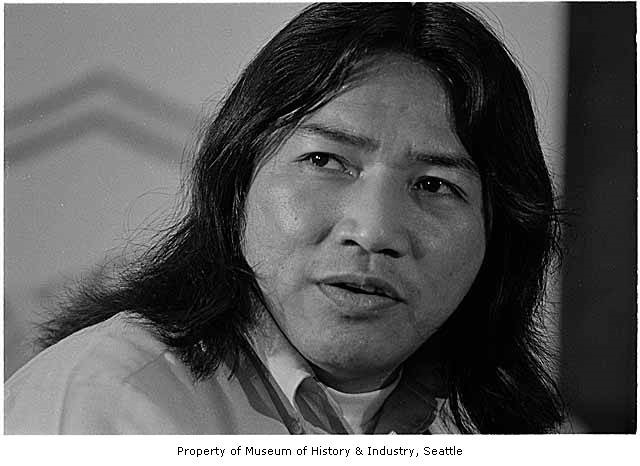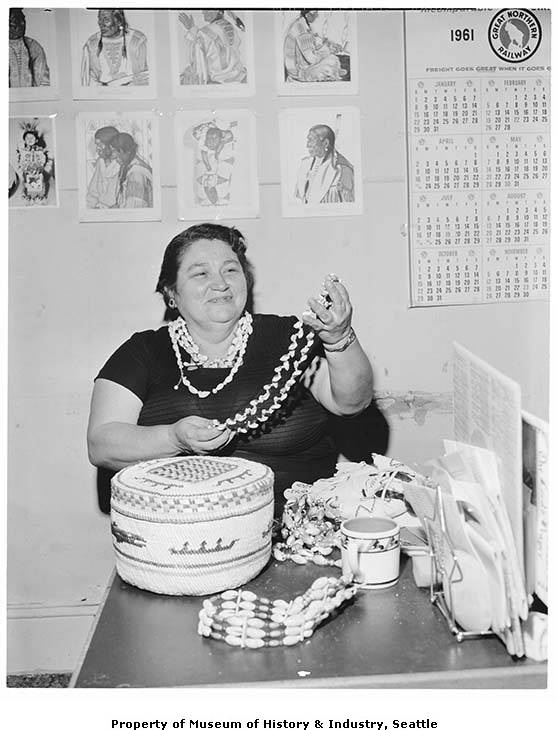United Way To Fund Seattle Urban Native Nonprofits
Perhaps you’ve visited the Pearl Warren Building in North Beacon Hill or driven along Bernie Whitebear Way in Magnolia amid your travails in Seattle, but do you know the people for whom both locales are named? You should, for their names are part of a Seattle Indigenous history that, though recently acknowledged and gradually woven into the mainstream, still isn’t spoken enough.
In 1958, Pearl Warren, a Makah Tribe woman originally from Neah Bay, led a group of seven Indigenous women to create the American Indian Women’s Service League, or AIWSL. According to the Seattle Civil Rights & Labor History Project, the AIWSL was the first organization in Seattle to address the struggles of urban Indigenous people. AISWL was a place where Indigenous people gathered and engendered a sense of community in a land that was all once theirs – and the group’s work led to the creation of other organizations.
Including the United Indians of All Tribes Foundation, which in 1970 was co-founded by Bernie Whitebear, who was born on the Colville Reservation. According to the organization’s website, Bernie Whitebear led a protest at Fort Lawton to reclaim a land base for urban Indigenous people in Seattle. The group successfully secured a 20-acre site that became the Daybreak Star Indian Cultural Center, located in what is now Discovery Park.
United Indians of All Tribes Foundation’s victory led to the formation of other groups that would ultimately comprise the Seattle Urban Native Nonprofits (SUNN). Some of the groups stretch back decades; others are more recent. Their lineage is the most colorful thread woven into the fabric of King County, and together, they amplify the cultures, concerns and courage of the area’s Indigenous people.
Soon they will be the recipients of a $1 million, unrestricted grant from United Way of King County as part of our Community Relief campaign that provides resources to the area’s Indigenous communities. Those communities have been disproportionately impacted by the recent COVID-19 pandemic and well as longstanding acts of racial oppression, genocide and injustice.

It marks the second time since 2020 that United Way will distribute $1 million in funding for the Indigenous Fund to help communities who were once the original inhabitants of unceded land that now comprises Seattle and King County. While the first round of funding involved restricted dollars for food and housing, the second round gives unrestricted dollars to Indigenous groups to be used at their own discretion.
The funding also comes at a time of renewal and resurgence of unity and collective advocacy on behalf of the Native community. According to SUNN’s website, its members say the collaboration was built upon “decades of Native knowledge, expertise and cultural wisdom,” and since 2017, SUNN has convened 13 urban Native organizations that served Indigenous populations. It annually serves more than 22,000 individuals with programming and services while creating spaces for smaller organizations to join with larger groups, amplifying their ability to advocate for communities.
The collaboration was built upon ‘decades of Native knowledge, expertise and cultural wisdom.’
Seattle Urban Native Nonprofits
In addition to United Indians of All Tribes Foundation, other SUNN members are as follows (information taken from each organization’s website):
- Na’ah Illahee Fund: an Indigenous, women-led organization dedicated to the ongoing regeneration of Indigenous communities.
- Urban Native Education Alliance: an organization that offers responsive and relevant support to Native youth and families through social, cultural, and educational support services.
- Chief Seattle Club: a Native-led housing and human services agency.
- Potlatch Fund: a Native-led nonprofit that provides grants and leadership development to Tribal Nations in Washington, Oregon, Idaho and Montana.
- Native Action Network: a nonprofit organization that promotes Native women’s full representation, participation and leadership in local, state, tribal and national affairs.
- Duwamish Tribal Services: an organization that promotes the social, cultural, political and economic survival of the Duwamish Tribe.
- Indigenous Showcase: an organization that creates a platform for community dialogue, supports Indigenous arts and highlights stories made by or from the perspective of the Indigenous voice.
- Red Eagle Soaring: an organization that serves Native youth ages 10-19 in the Seattle area, empowering them by building their self-confidence and self-expression through traditional and contemporary performing arts while keeping them critically connected to their cultural identity.
- Native American Women’s Dialog on Infant Mortality: a collective of Native care providers, community members, grandmas and allies who provide advocacy, education and support for American Indian and Alaska Native infants, moms and families in Washington State.
- Northwest Justice Project: a Native American group that provides legal assistance in areas of critical and unique importance to Native American clients.
- The National Urban Indian Family Coalition: an organization that advocates for American Indian families living in urban areas by creating partnerships with tribes and other American Indian organizations.
During the first round of Indigenous Fund donations, more than 608 individuals were served, the majority Indigenous people. Funds covered critical staffing needed for COVID-19 relief efforts and helped open a 66-room temporary hotel shelter. United Way is honored to fund such organizations. Funding to collaborations such as SUNN will support Indigenous communities to continue to thrive on their own terms.


Comments